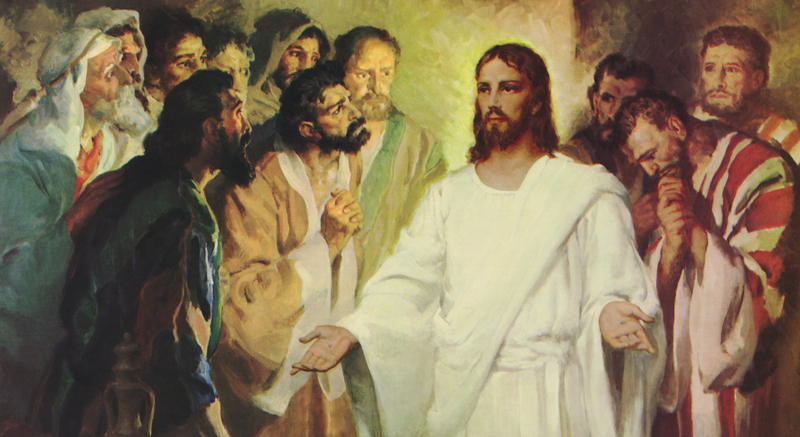Second Sunday of Easter — Divine Mercy Sunday
Prayer of St. Thomas, Apostle
Lord, you know me so well,
I am realistic,
Always protecting my heart from false hope,
Often falling into pessimism.
And yet, O Lord, I do not struggle to believe.
My heart is filled twin emotions — love and fear.
My love for you cannot reconcile the way you died.
My fears multiply remembering how I betrayed you.
And yet you come to me,
Time and again.
You unlock the doors of my fear
And open my life to your all-encompassing love.
Your silent smile melts me with unending forgiveness-
You offer your warm wounds for me to touch,
Your heart filled with boundless patience,
Your soft words of gentle peace.
You breathe on me.
Whispering new life into me,
Empowering me to be all that I am.
Recreating me again and again …
Each time, I realize
That your best gift to me
Is my own power to forgive others.
My heart sinks to the ground in grateful, loving surrender;
I fall on my knees,
How well I know that You are the Only Way,
You, my Lord, my God, and my All. Amen.
Call to worship
Today’s gospel story of Jesus and Thomas helps us to understand that faith is a gift from God. Faith allows us to touch Jesus without being able to see him.
- To the point: The basic issue in this gospel story is coming to believe that Jesus is risen and alive. What is made clear is that believing is not dependent on physical contact with Jesus (Thomas makes his profession of faith without touching Jesus) but coming to believe does depend on personal encounter. Authentic encounter between persons only happens through mutual self-giving: Jesus’ self-giving is shown through his gift of the Holy Spirit to us; our self-giving is shown when we open ourselves to receive that Spirit. Coming to believe more deeply that Jesus is risen and alive is the work of the Spirit within and among us. What a Gift!
- Connecting the Gospel (John 20:19-31) to the second reading: In the Gospel Jesus extols those who come to believe that he has risen even though they have not seen him. In the first reading Peter also extols those who have not seen, yet still love and believe in Jesus. Belief in Jesus’ risen Life elicits “indescribable and glorious joy.” So, who would not want to believe?
- Connecting the Gospel to experience: We don’t come to belief through proofs; we come to belief through the attestation of others whom we trust. The same is true of our belief in the risen Jesus. We have not seen him, but we do encounter him and come to believe in him through the words and actions of others.
Centering prayers
The Gospel
(John 20: 19-31)
“As the Father has sent me, so I send you.”
Merciful Christ, please come right
through our barricaded doors;
breathe your Holy Spirit upon all of us.
Pick us up when we fall.
Give us your peace that comes
from your perfect love of us.
Not to hoard such treasure;
we want to give it out
to everyone who would believe.
Make us instruments of the power
of your resurrection!
The First Reading
(Acts 2: 42-47)
“All who believed were together and had all things in common.”
Please bring us together, Lord.
Feed your people with your gift of grace:
it makes us one in you.
Thank you for your love: it unites us.
Let it be the one nourishment
that gives us strength
to care for each person’s needs.
Let us love each other well.
The Second Reading
(1 Peter 1: 3-9)
“Blessed be the God and Father of our Lord Jesus Christ,
who in his great mercy gave us a new birth to a living hope.”
Christ, though we haven’t seen you, we love you.
Though our poor minds cannot grasp you very well,
we believe in you. And with indescribable joy
in your resurrection we hope in you always.
Copyright © 2023, Anne M. Osdieck
Music for reflection
